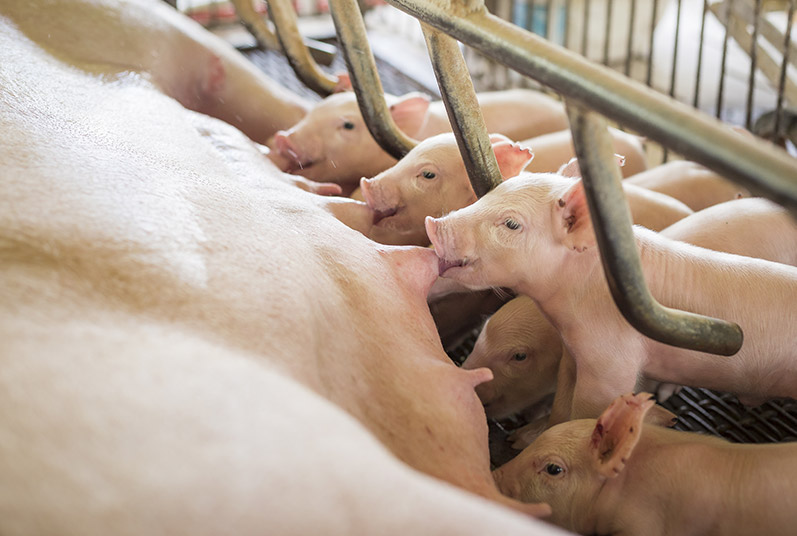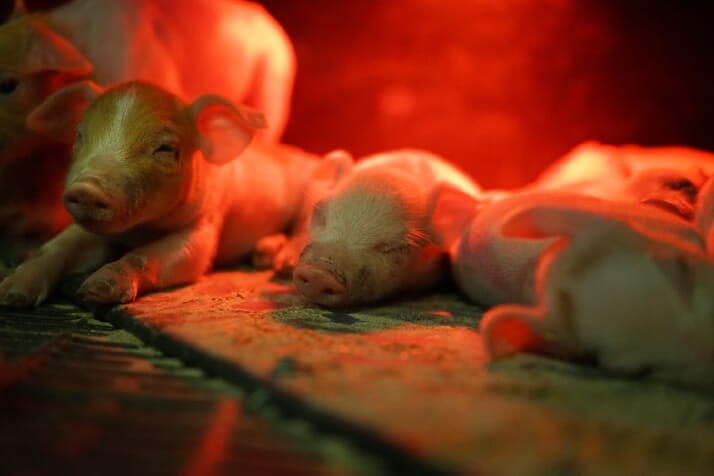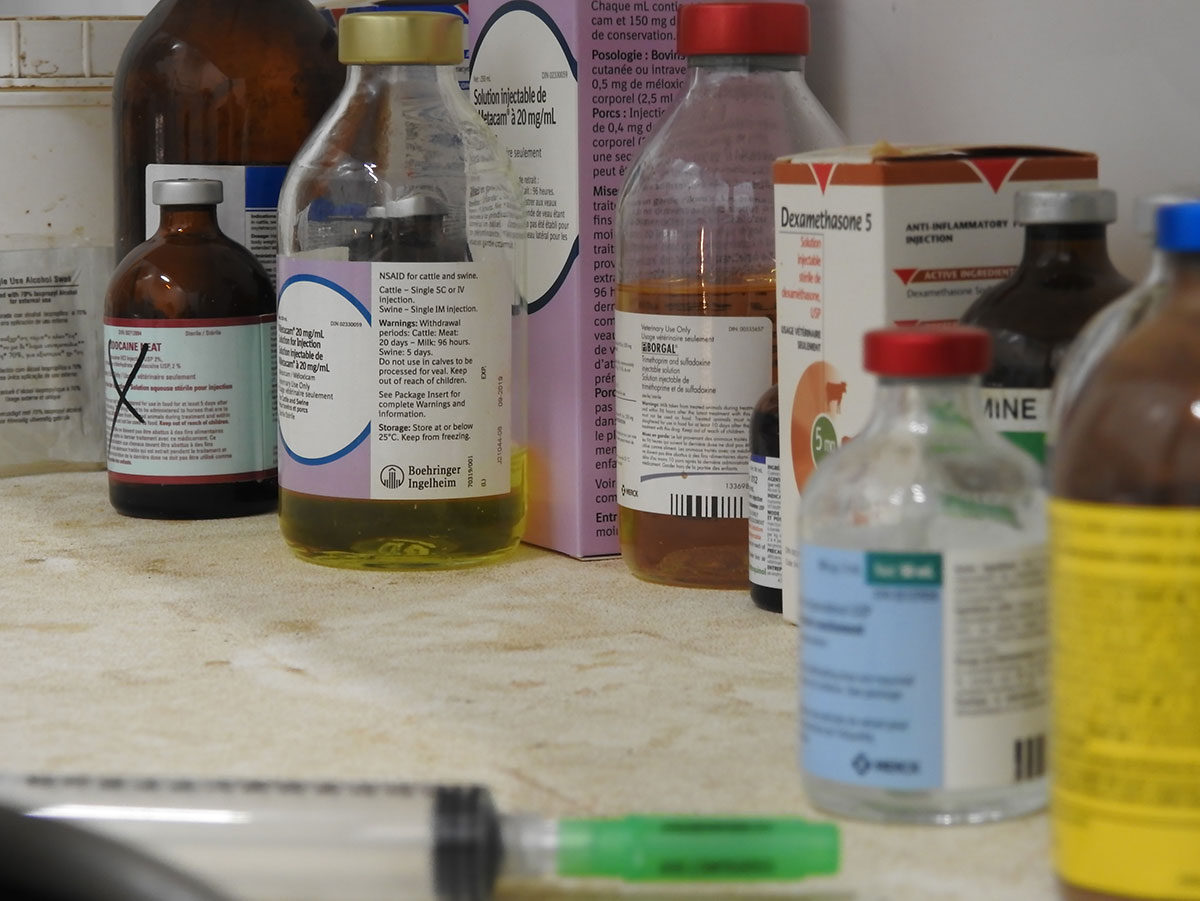Section 2 | Diarrhea In Piglets
Industry
Page 08 /
Host Immunity
The newborn piglets’ immune system is immature at birth, becoming functional around 4-7 weeks of age. What’s more, is that no maternal antibodies are transferred to the growing fetus during pregnancy. This means that piglets are born with little to no immunity, and so must receive it from colostrum until they can develop their own immunity. These factors make the newborn piglet very susceptible to developing disease. To reduce the risk of developing illness, it is critical to bolster the piglets’ immunity through excellent colostrum management and preventing hypothermia. Preventing hypothermia is of particular importance, because young piglets are unable to develop their immune system when they use energy to maintain their body temperature.

Colostrum Management
As piglets are born with an immature immune system; they rely on passive immunity to provide protection against disease. To achieve passive transfer of immunity from the sow, piglets must consume colostrum that is of good quality — that is, high levels of immunoglobulins or antibodies (IgG, IgA, IgM), immune cells, and other antimicrobial substances — quickly after birth. This will ensure the uptake of these components into the piglets’ bloodstream. As the ability of the intestine to absorb these essential components declines over time (ceasing completely at 24 hours of age), immediate uptake of colostrum is critical1. Hence, newborn piglets should be monitored closely to ensure adequate colostrum intake in the first hours after farrowing. With adequate colostrum, piglets will be better equipped to fight off diseases they are exposed to later in life.
One way to improve the overall quality of a sow’s colostrum is to ensure the sow has improved antibody development prior to farrowing. Some vaccines are available, specifically for E. coli, rotavirus, and Clostridial disease that can be administered to sows and gilts prior to farrowing to generate more specific antibodies against these pathogens and deposit them in their colostrum. This will help piglets develop immunity after they’ve ingested colostrum.

Environmental Temperature: Preventing hypothermia
Piglets are extremely sensitive to hypothermia in their first few weeks of life. This is because they have:
- Poor hair coverage
- Large body surface-to-weight ratio
- Minimal fat and energy reserves
When piglets are hypothermic, their intestines will not work as effectively and piglets will not consume or digest as much colostrum. This can lead to diarrhea of increased severity when piglets are exposed to pathogens. Thus, ensuring that your farrowing rooms are heated, have heating pads, and/or heat lamps can help to ensure colostrum and its important antibodies are absorbed.
Keeping young piglets warm will also reduce stress. When piglets are required to use energy to generate heat to maintain their body temperature, they have less energy to put toward growth and fighting off illness.
For more information, visit out Key Aspects of Animal Husbandry page within the Antimicrobial Stewardship FAAST Review.

Source: The Pig Site
Maternal to Own Immunity
Nursery piglets are susceptible to the development of diarrhea. At this stage piglets:
- Are in the process of being weaned
- Move to the nursery barn where animals from different groups are being mixed
- Must adapt to a new diet
- May experience bullying with new group dynamics
These transitions can be stressful for young animals. This is also compounded by a decrease in maternal immunity at this age.
As mentioned, piglets have undeveloped immune systems at birth, relying on colostrum to provide them with antibodies for protection against illnesses early in life. These maternal antibodies remain in the piglet’s circulation for the first few weeks of life, and diminish over time as the piglet develops its own immune system. The transition between maternal immunity to a piglet’s own immunity leaves them susceptible to illness and disease for a short period of time.
Work with your veterinarian to develop a weaning and movement strategy to keep stress levels at a minimum during this time. It is also important to ensure that newly arrived animals in the nursery barn are closely monitored so that there is no bullying, and that all piglets have access to feed and water. This will help to reduce stress.

Source: ACER Consulting Ltd.
References
- Rooke, D.G, and I.M. Bland. 2002. The acquisition of passive immunity in the newborn piglet. Livestock Production Science. 78:13-23.